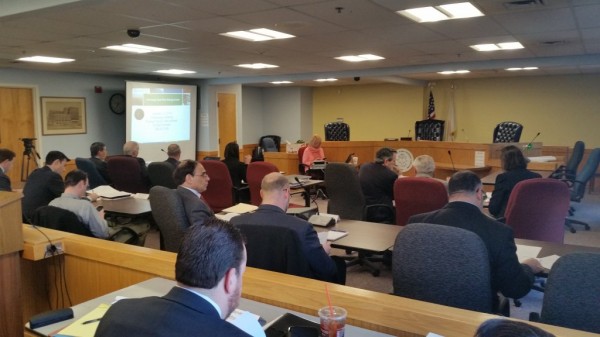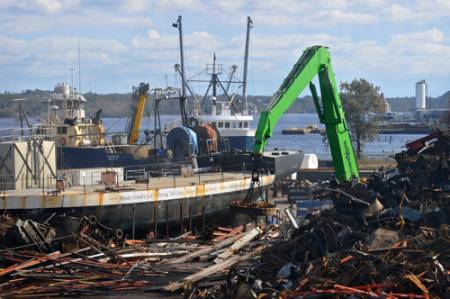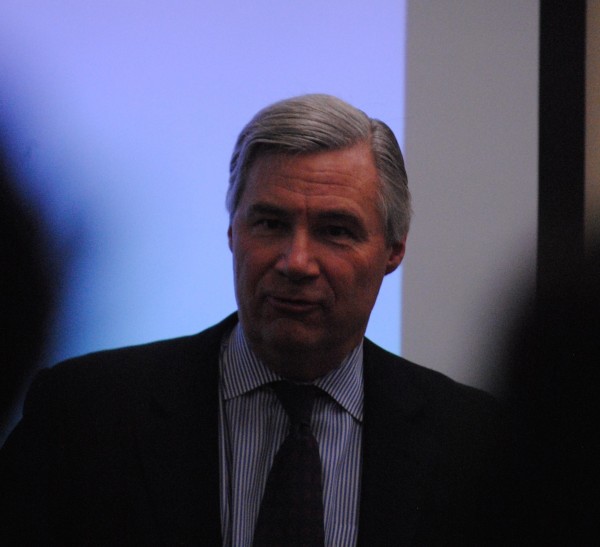
United States Senator Sheldon Whitehouse has a national, and even international, reputation as a climate champion, noted Rhode Island Senate President M Teresa Paiva-Weed as she introduced him to to the nearly 150 people gathered in Newport for a community dinner and Q&A. Paiva-Weed talked up Whitehouse’s concern for his constituents, saying, “Someone like Sheldon makes it a point to be home and to have a focus on the issues at home.”
But to the residents of Burrillville who drove for over an hour through rush hour traffic to attend the dinner, Whitehouse hardly seems focused on “the issues at home” and in fact, his own words belie that. His international reputation as an environmental champion is of small comfort to the townspeople fighting Invenergy’s $700 million fracked gas and diesel oil burning power plant.
Whitehouse touted his environmental concerns in his opening remarks, saying, “The good news is that… the [climate] denial operation really is collapsing. You can feel it visibly. We’re at the stage where the CEO of Exxon has had to admit, ‘Okay, climate change is real, and we’re doing it and we want to get something done.’”
Climate change, says Whitehouse, “is going to hit home for Rhode Island in a really big way and I want to make sure that I’ve done everything that I possibly can to make sure that we are as prepared for it as we can be in the Ocean State.”
Richard Dionne, vice president of the Burrillville Conservation Commission was called on by Whitehouse to ask the first question.
“When discussing the most influential senators from Rhode Island on environmental quality issues, your name is often brought up in the same sentence as our former Senator John H Chafee,” said Dione, “Not bad company to be in if I do say so myself.”
“Really good company,” agreed Whitehouse.
Dione continued, “However, our Senator Chafee would be rolling over in his grave if he knew that a 900 megawatt fracked gas power plant being proposed by Governor Raimondo was to be sited smack dab in the middle of the John H Chafee Heritage Corridor in the northwest corner of Rhode Island, on the shared border with neighboring states Connecticut and Massachusetts.
“This area has been recently designated as part of the National Park Service. The approximately 13,000 acres of protected forests, recreational areas, wetlands and conservation areas is absolutely the most inappropriate area for this type of project.
“Every environmental organization in the state of Rhode Island has come out against the project,” continued Dione, “including the Environmental Council of Rhode Island, the Audubon Society, the Nature Conservancy, Blackstone Heritage Corridor, the list goes on and on, I have a list right here…”
“I know the list,” said Whitehouse.
“At many of the public hearings I attend, invariably the question gets posed to me, ‘Where is our environmental Senator on this issue and what is he doing for his constituents in Burrillville?’ A town which, by the way, has supported your election in 2006 and 2012.
“So my question is Senator Whitehouse,” said Dione, winding up, “What answer can I bring back to the people of Burrillville, and can you commit this evening to opposing this power plant?”
“The short answer is,” said Whitehouse after a short pause, “There is a process…”
“Here we go,” said a woman at my table with open disdain.
If there was a wrong answer to give, this was it. Everyone who attended Governor Gina Raimondo’s appearance at the Burrillville High School has heard this answer before. No one takes “trust the process” seriously. It’s political dodge ball.
Conservation Law Foundation (CLF) attorney Jerry Elmer has spoken eloquently about the process. “Remember that the reason – the raison d’etre – that the General Assembly created the EFSB (Energy Facility Siting Board) was precisely to take these energy siting decisions away from the Town Councils and town planning boards,” wrote Elmer.
RI Senator Victoria Lederberg, who got the EFSB legislation through the General Assembly 30 years ago, called the siting board concept “one-stop shopping” for power plant developers. Climate change, environmental concerns and the health and safety of residents didn’t seem to be high on the General Assembly’s priorities when the EFSB was formed.
The process renders the opinion of ordinary townsfolk essentially meaningless, said Burrillville Planning Board attorney Michael McElroy. “The EFSB can take [our opinion], they can take it in part, or they can reject it.”
“There is a process,” said Whitehouse, “taking place for [the power plant] through the state Energy Facility Siting Board. They take sworn testimony, as I think you know. There are a whole bunch of local environmental groups that are intervened into that proceeding. The Conservation Law Foundation has come down from Boston to intervene in that proceeding. They have witnesses.”
Senator Whitehouse is incorrect here. The only environmental group certified as an intervenor in the EFSB proceedings is the CLF. The Burrillville Land Trust, Fighting Against Natural Gas (FANG), Burrillville Against Spectra Expansion (BASE) and Fossil Free Rhode Island were denied intervenor status, as it was felt that their interests would be seen to by the CLF.
“It’s essentially an administrative trial that is taking place,” continued Whitehouse, “I have confidence in that process. I have confidence in Janet Coit at DEM (Department of Environmental Management) who by virtue of being the DEM director is on the Energy Facility Siting Board. I have confidence in Meg Curran, chairman of the Public Utilities Commission (PUC) who by virtue of being chairman chairs that Siting Board, and there’s going to be somebody from the Department of Administration…”
Associate Director of the Division of Planning, Parag Agrawal, is the third member of the EFSB.
“It’s a process I’ve worked with from my earliest days,” said Whitehouse, “when I first came as a young lawyer to Rhode Island I worked in the Attorney General’s office and I practiced representing the people before the Public Utilities Commission.
“So I have confidence in the process.
“Congratulations,” added Whithouse, “The opposition to Invenergy, I think, has won every round. Burrillville said ’No’ on planning, Burrillville said ‘No’ on zoning, the water board said ‘No’ on water, so I think you’re, yeah, it’s a process and I know it would be easier to just yell about it but it’s a process that I think is honorable and will come to the right result.
“So I want to focus my efforts on where it will make the biggest difference. I know we’ve had some conversation, repeatedly, but I still am of the view that, with the force and strength that I have available to me, I want to apply every bit of that force and strength to the battle in Washington, which if we win it, will be immensely significant, not just to Burrillville but to all of Rhode Island and to the country and the world.
“So, sorry that I don’t have more to give than that, but I do think that I give pretty well at the office with what I do on this issue. Thank you for bringing it up though, I appreciate it.”
Burrillville resident Lynn Clark was called on to ask the next question. This seemed like a coincidence, but in fact, half the questions asked concerned the power plant in Burrillville, in one way or another.
Clark rose and with only the slightest hint of nervousness in her voice, said, “My name is Lynn and I come from the northwest corner of the state of Rhode Island. It has been my home all my life. I applaud you and I love the work you’re doing on the environmental front.
“In Burrillville, our little town has come together and we have come out strong against this giant plan. We have a lot of environmental groups [on our side], 23 currently, and we are working hard.
“I wish I could say that I am as confident in this process as you are, sir. It has been a scary process. We have been consumed by this process. I have been at every meeting, for hours, two or three meetings per week. Sir, this is a scary, scary process.
“We need a champion in Burrillville and we are asking you to please come see us. Please, come talk to us. If this Invenergy [power plant] gets built, the detriments to our little state will be just horrifying.”
Clark’s appeal to Whitehouse was raw and emotional. It’s the kind of speech people give in movies to roust tired champions into battle one final time.
But this wasn’t a movie and Whitehouse wasn’t willing to be the hero.
“I hear you,” said Whitehouse, once again echoing words Governor Raimondo used in Burrillville when she visited, “I can’t add much to what I’ve said to Richard. Thank you for taking the trouble to come down and share your passion.

“It is the National Heritage Corridor,” said Clark, not giving up, “We also have a boy scout camp up there, camp grounds… Have you been up to Burrillville?”
“Oh yeah,” said Whitehouse.
“Okay,” said Clark, “I hope you come visit us soon, sir. Thank you.”
Other questions came and went. Whitehouse was asked about the Supreme Court vacancy, grid security and the opioid epidemic. When Newport resident Claudia Gorman asked Whitehouse about the Federal Energy Regulatory Commission (FERC), he admitted that on the federal level, at least, he isn’t as certain about the integrity of the process.
“There have been several problems, at the federal level, with the approvals,” said Whitehouse, “They haven’t baked into their decision making what is called the social cost of carbon.” Whitehouse added that we don’t take seriously the problem of methane gas leaks, and that he held the first hearings on the issue of gas leaks and that we still don’t know the full extent of that particular problem…
The last question of the evening came from Cranston resident Rhoda Northrup. She rose as Whitehouse tried to bring the discussion to an end, and would not allow the dinner to end without asking her question.
“I do not live in Burrillville I live in Cranston,” said Northrup, “and what’s going on in Burrillville should not be completely on their backs. This is a global issue for all of us and if that power plant comes to our state of Rhode Island, it will set us back forty years. We will be committed for another forty years to a fossil fuel.
“That’s wrong.
“We need to move forward with wind and solar. And with all of that said, I would like to ask the senator if he has an opinion. With everything that’s been said tonight, ‘Do you have an opinion?’
“I know it’s a process,” said Northrup, “but that’s not an answer. Everybody’s telling us it’s a process. We know that. We’re walking the process. But we’re asking our leaders if they have an opinion. You must have an opinion.”
There was a short pause before Whitehouse answered.
“My opinion is that we must get off fossil fuels,” said Whitehouse.
“Thank you for that,” said Northrup.
But Whitehouse was’t finished. Lest anyone believe that by that statement Whitehouse was taking a stance against the power plant in Burrillville and matching action to his words, Whitehouse switched to his familiar political talking points.
“My opinion is that the best way to do that,” continued Whitehouse, “is to balance the pricing of fossil fuels, so that they are treated fairly in the marketplace. Right now they have a huge, unfair advantage because they don’t have to pay for the cost of the harm that they cause…”

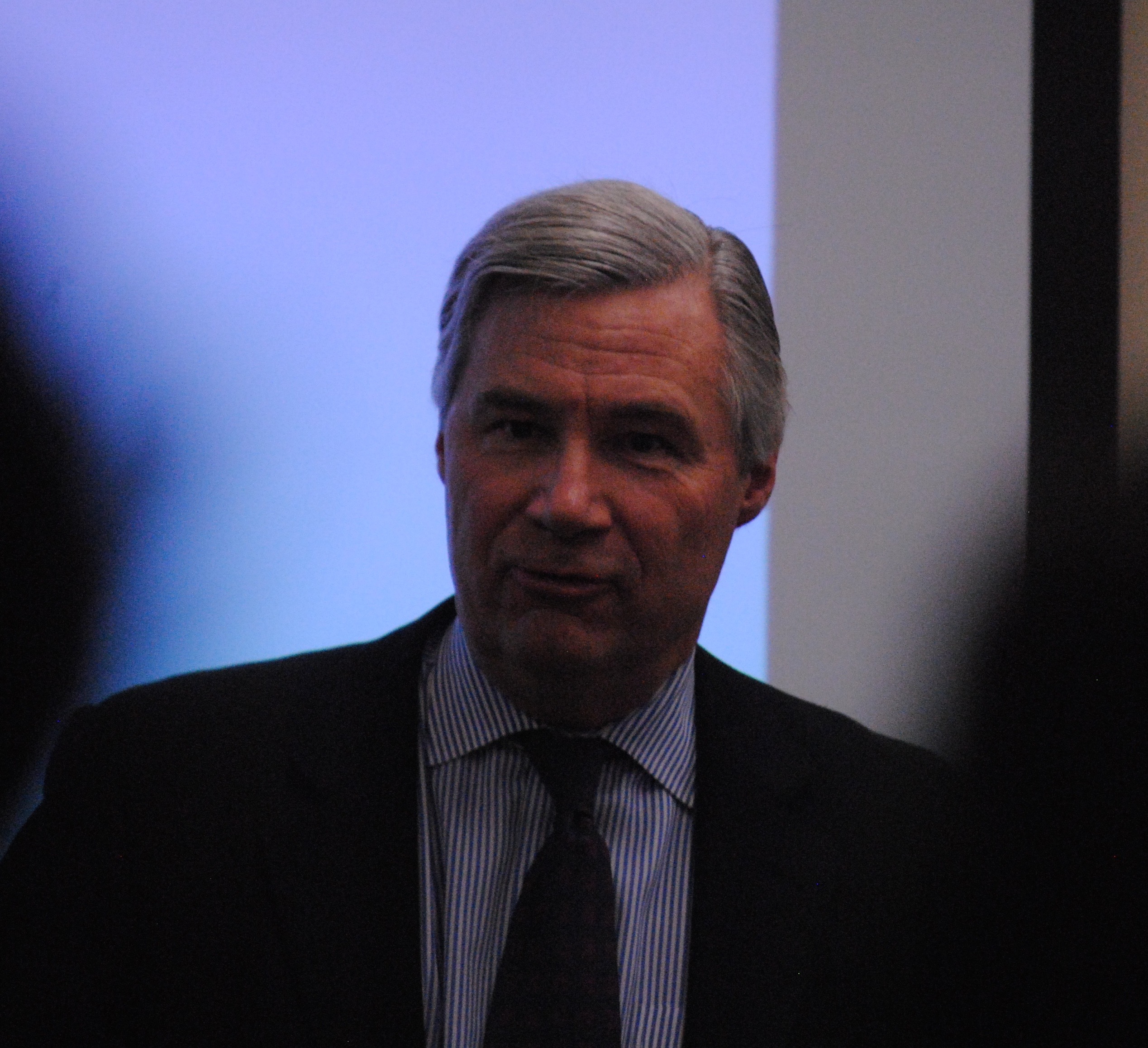
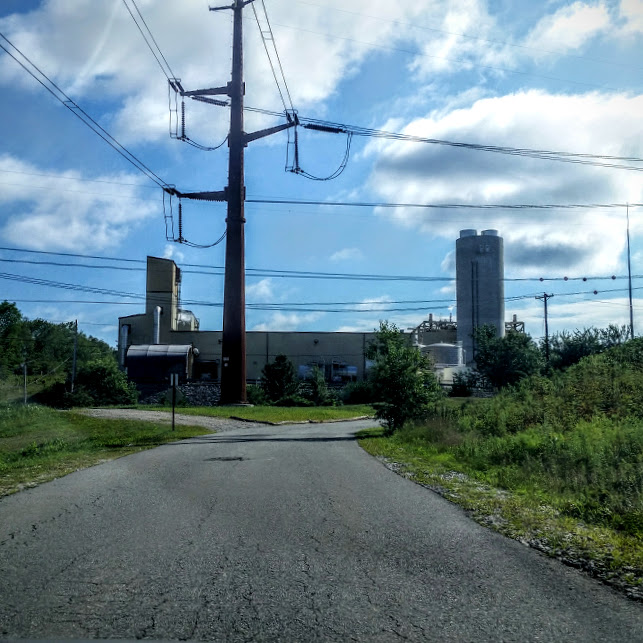
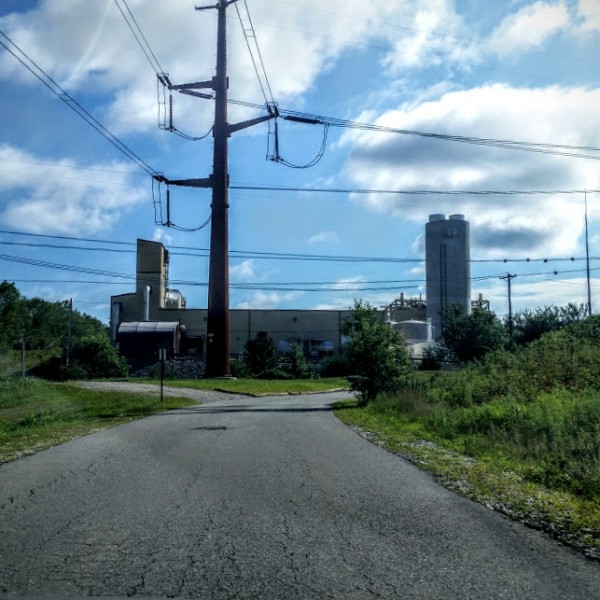

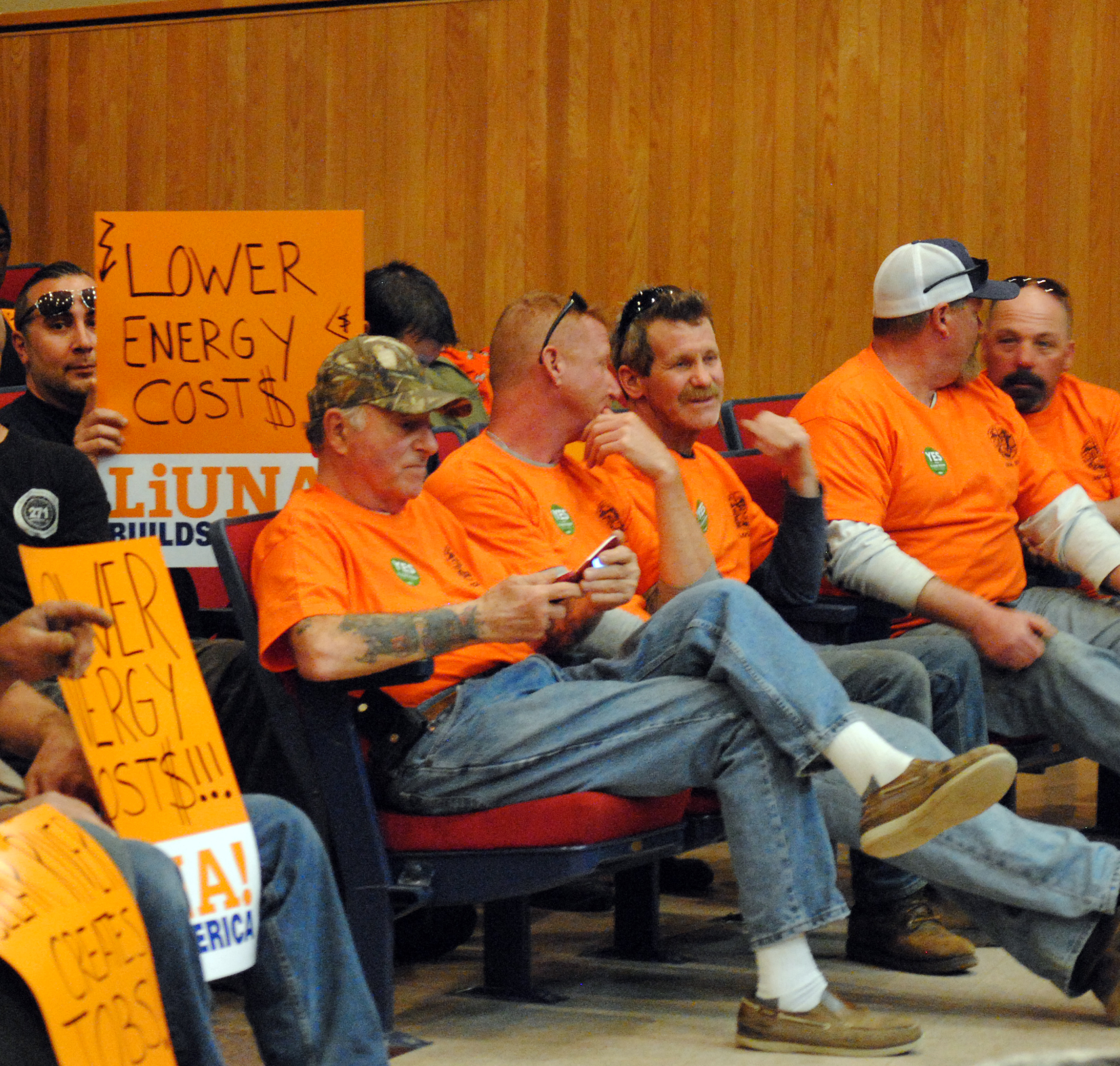
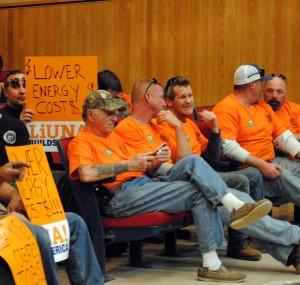

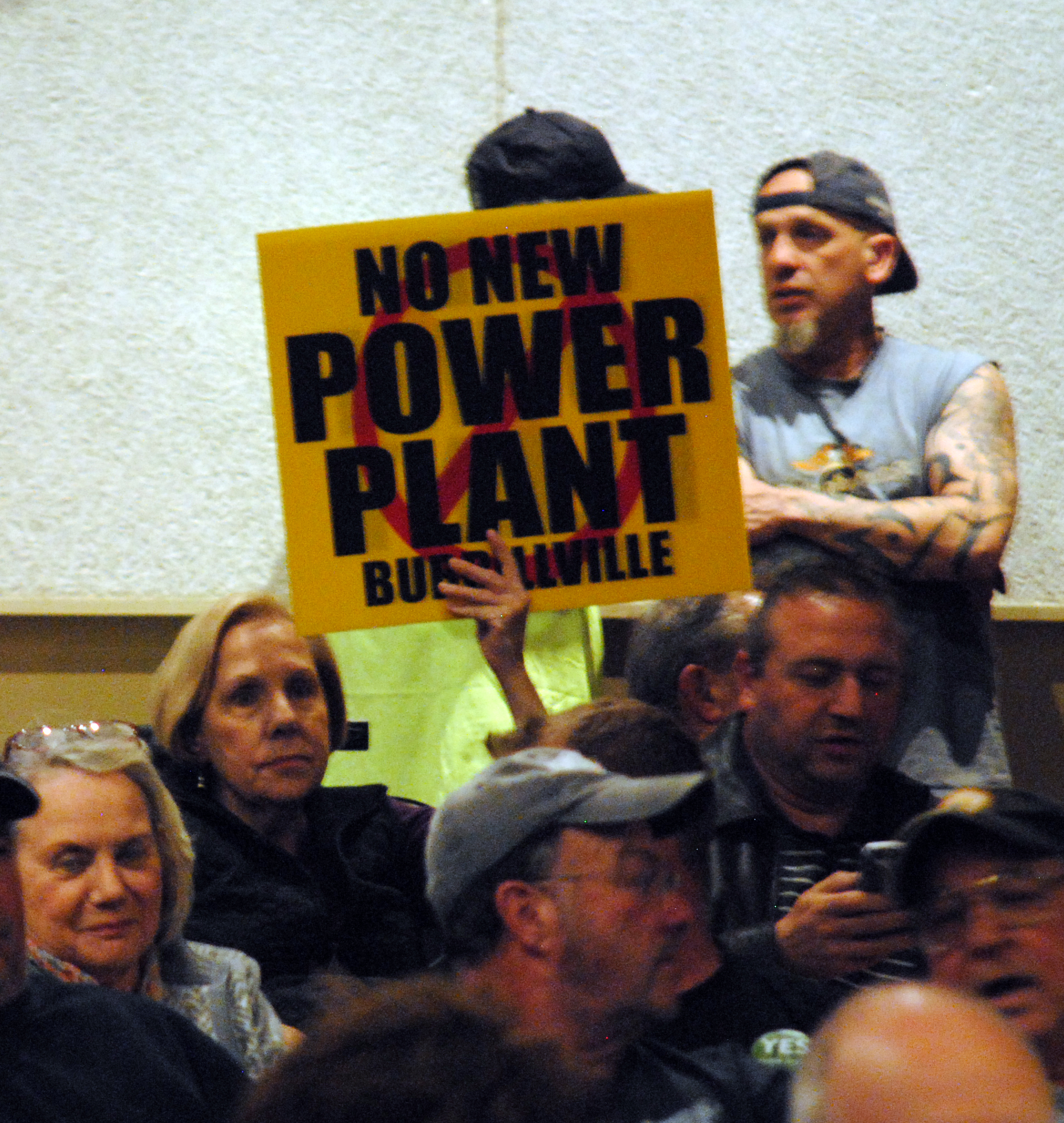
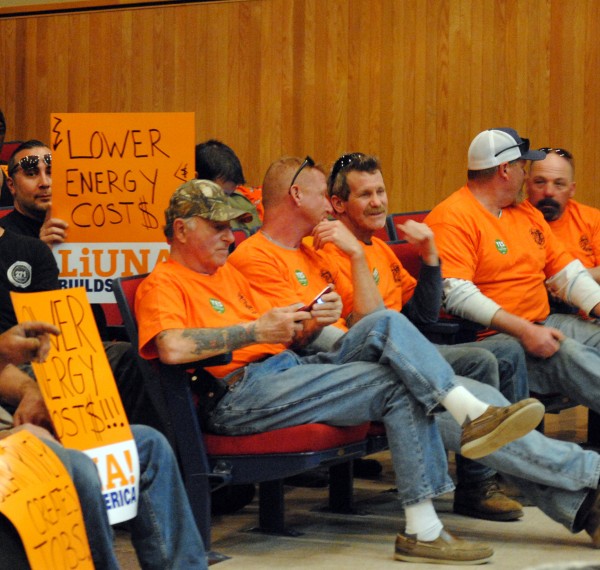
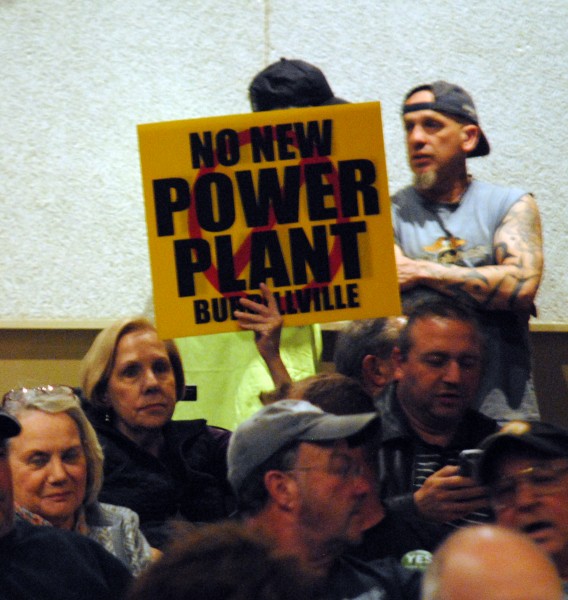 Tensions were high in the auditorium. Michael Sabitoni, president of the Rhode Island Building and Construction Trades Council and over a hundred union members arrived early, and many Burrillville natives resented their presence. One speaker from Burrillville claimed that the union members were “intimidating.” A union speaker objected to this, calling the accusation of intimidation, “B.S.”
Tensions were high in the auditorium. Michael Sabitoni, president of the Rhode Island Building and Construction Trades Council and over a hundred union members arrived early, and many Burrillville natives resented their presence. One speaker from Burrillville claimed that the union members were “intimidating.” A union speaker objected to this, calling the accusation of intimidation, “B.S.”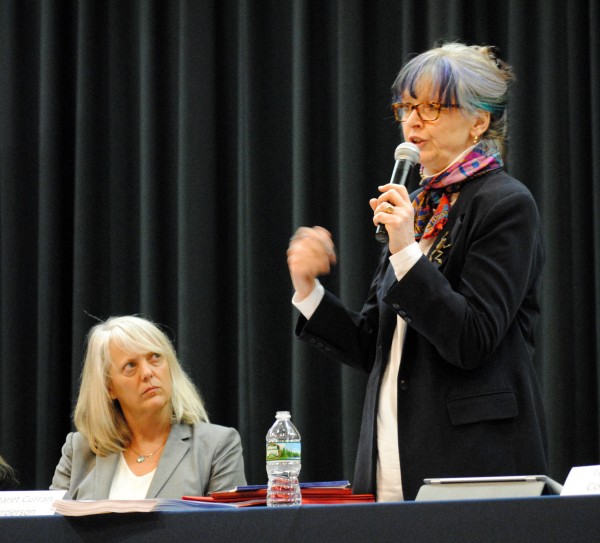
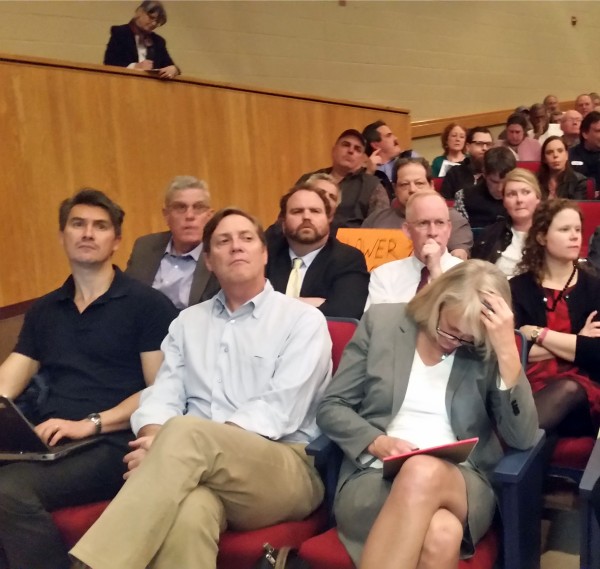
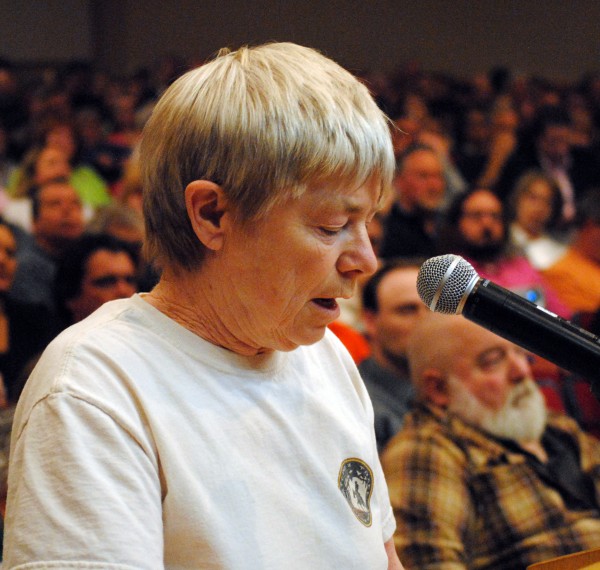
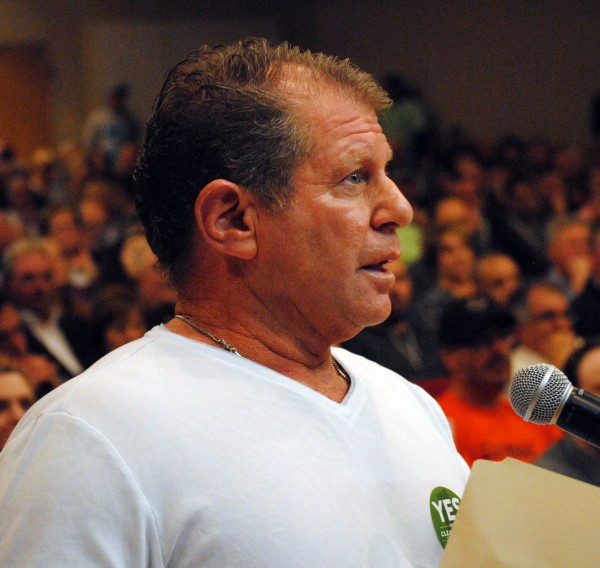
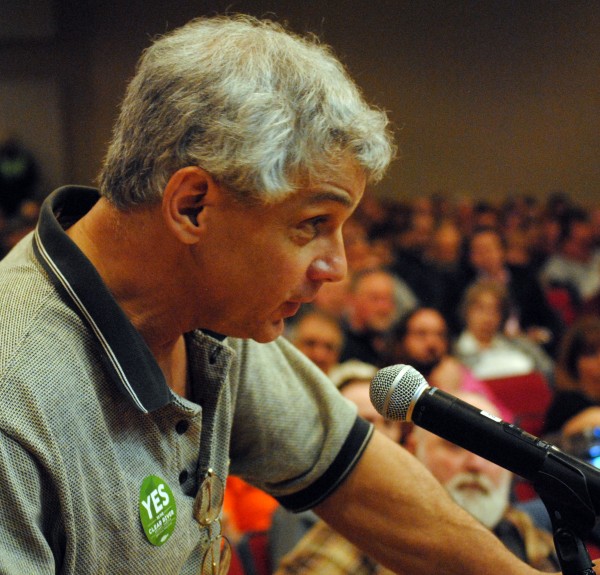
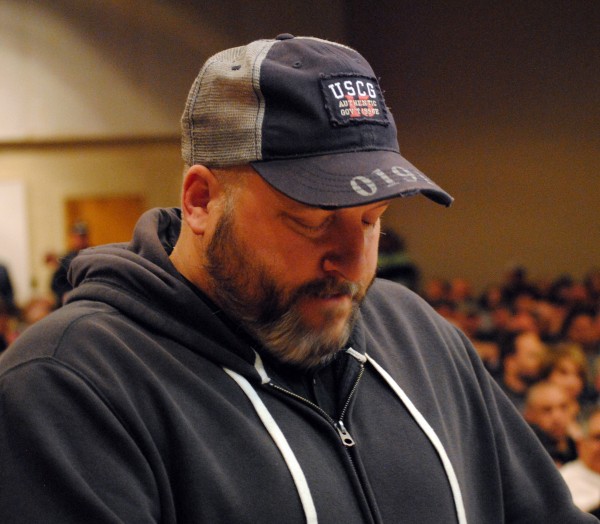
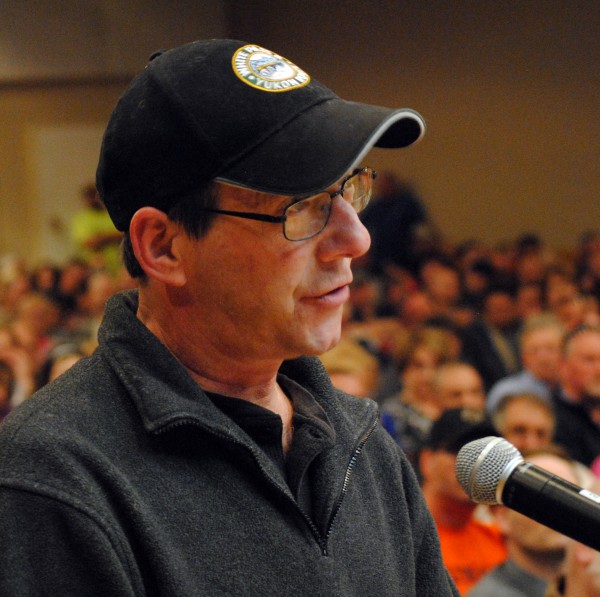
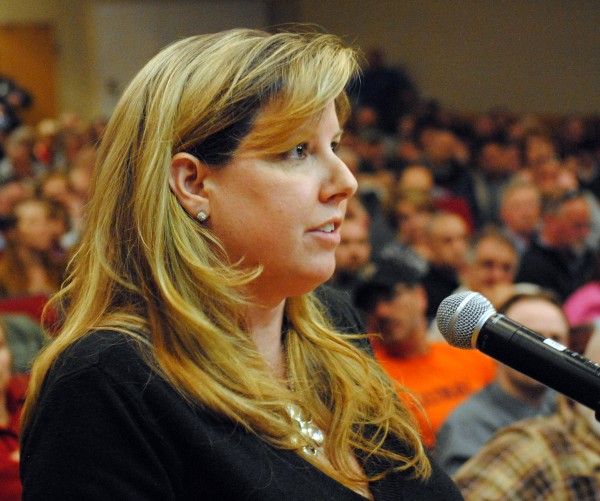

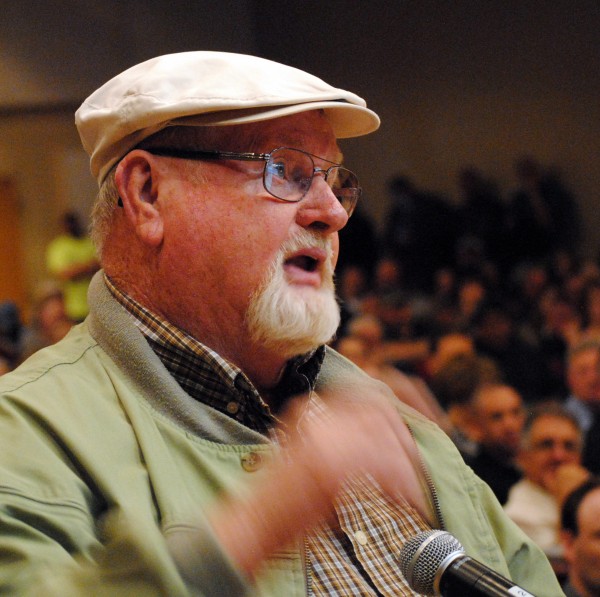
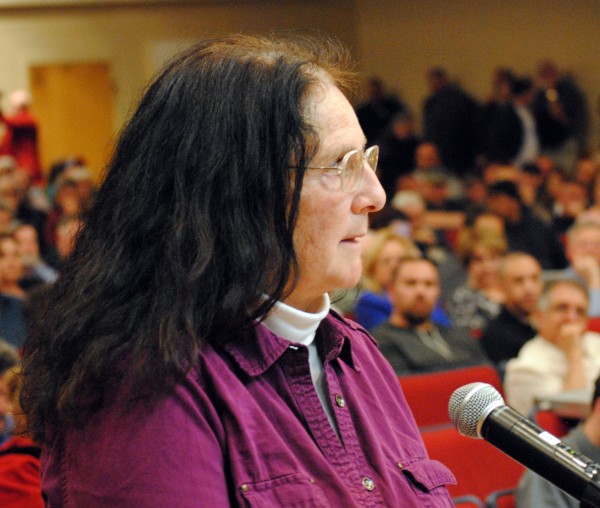
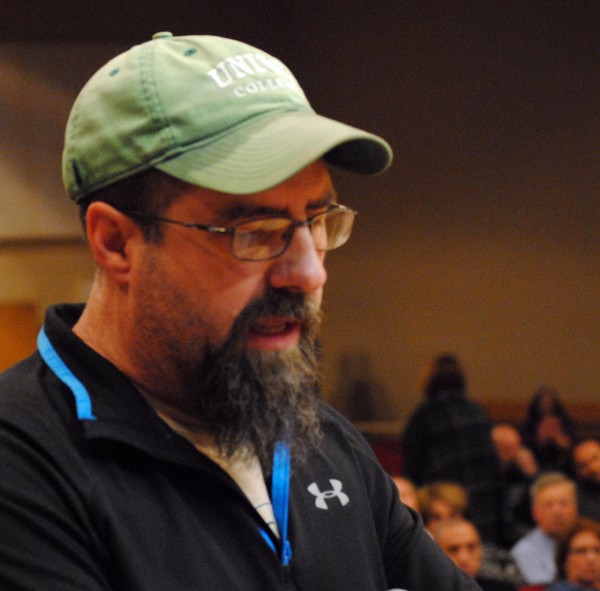
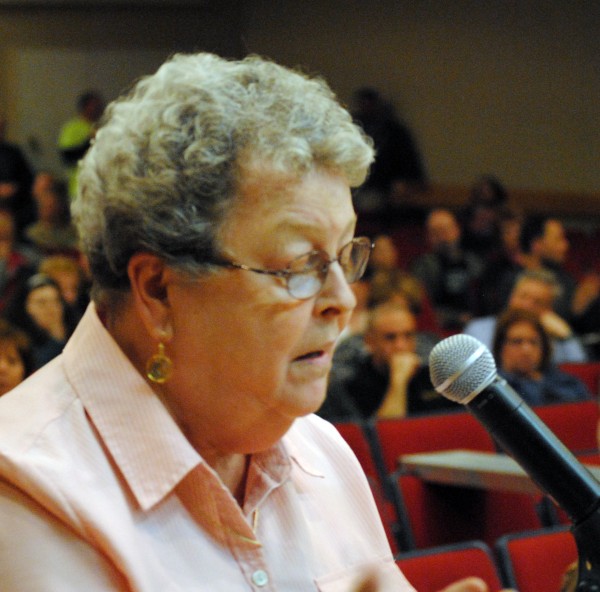
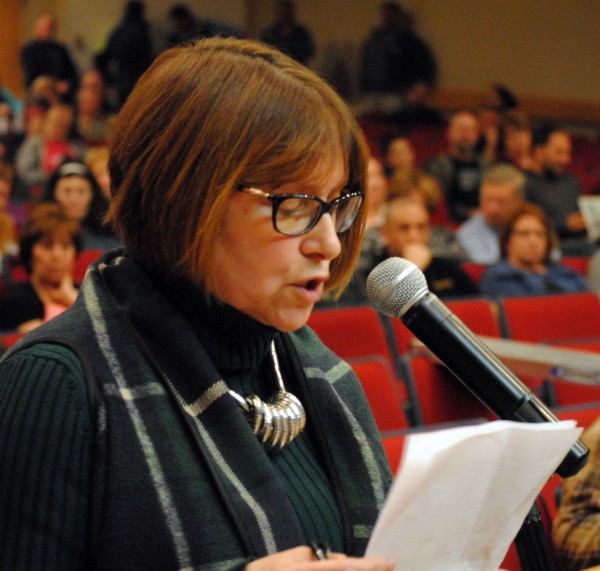
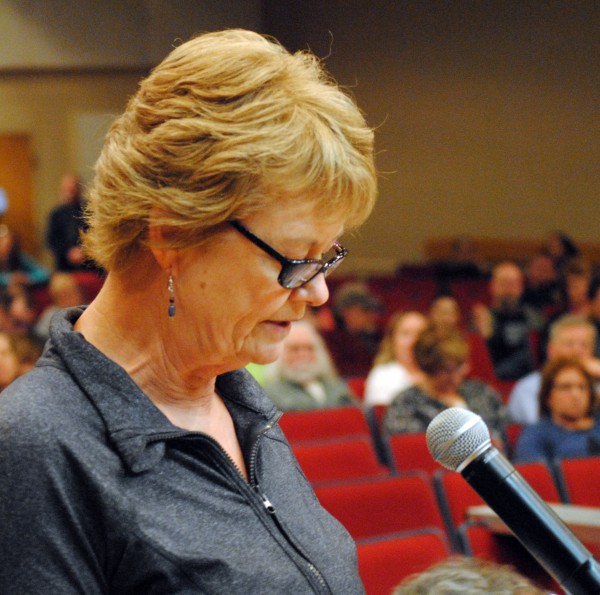
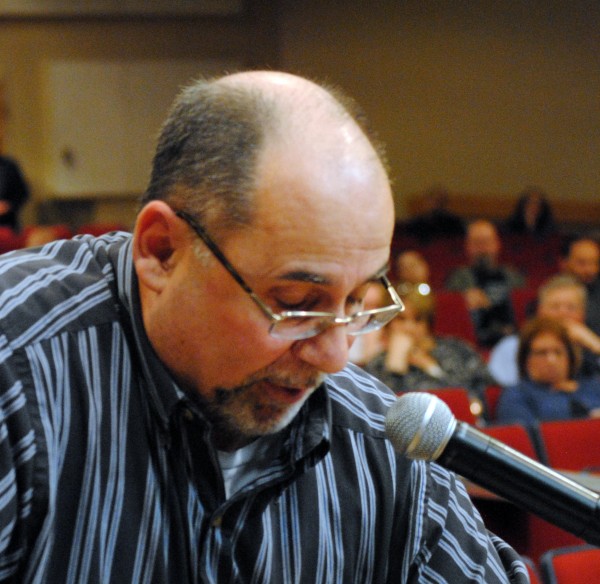
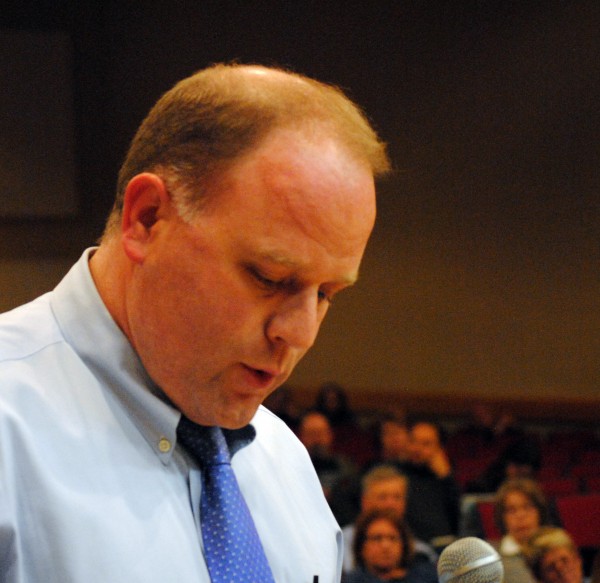
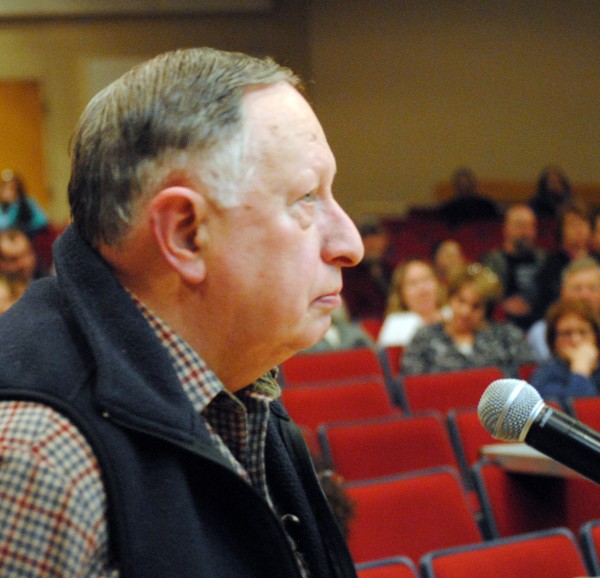
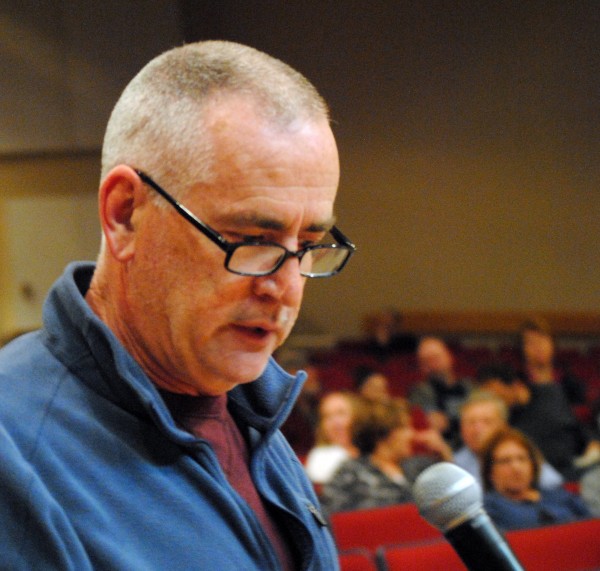

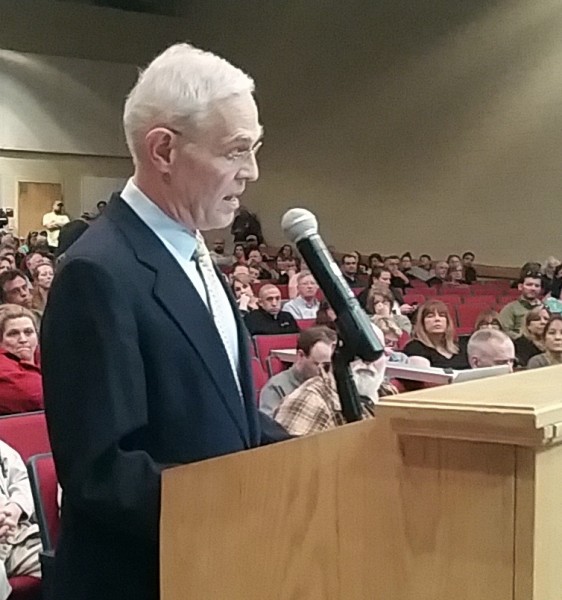
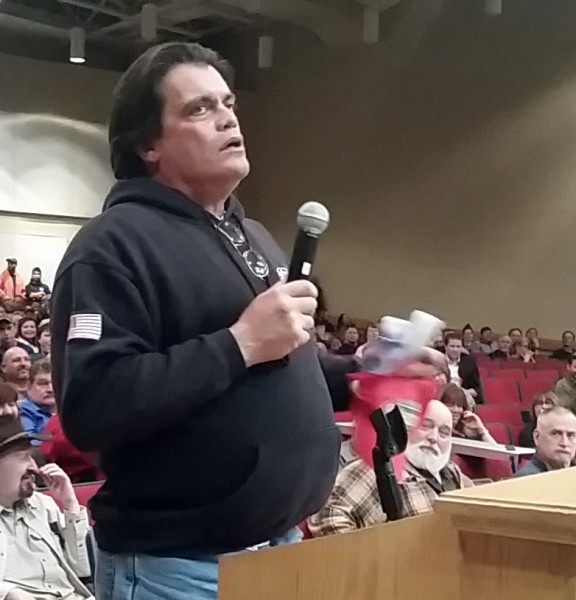
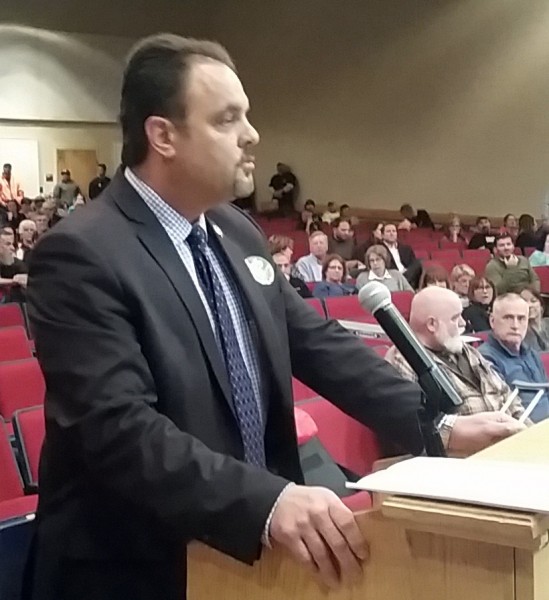
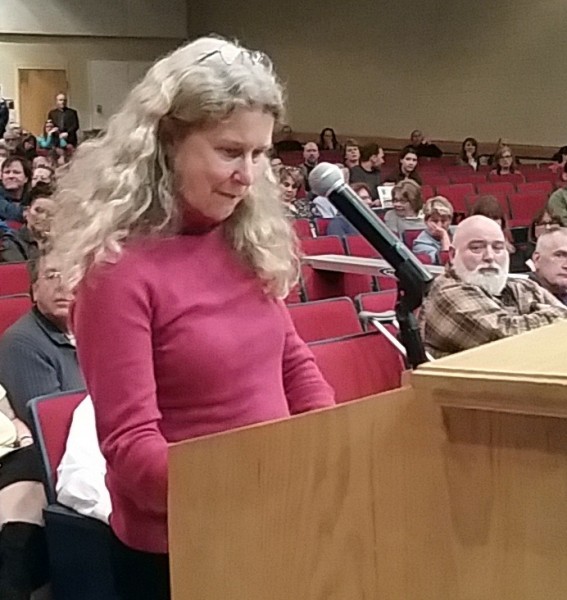
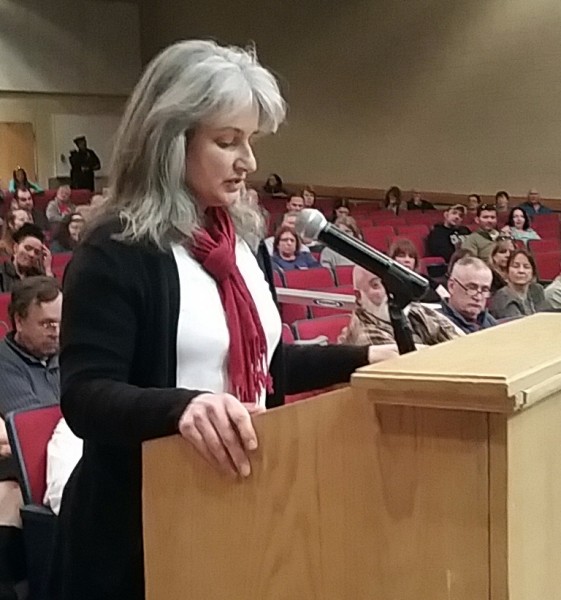
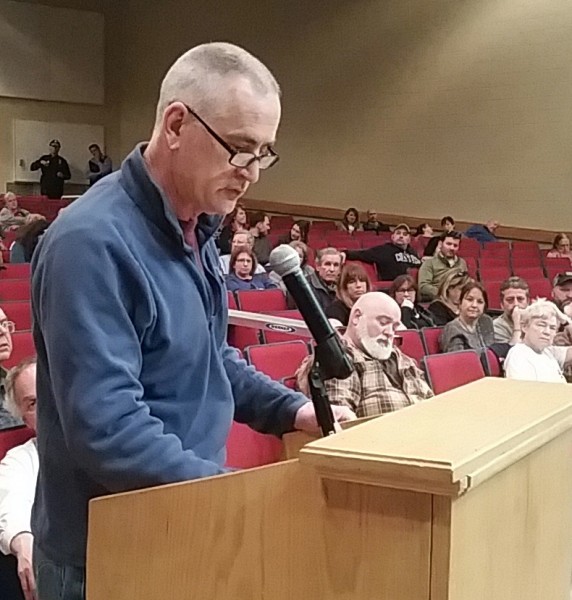
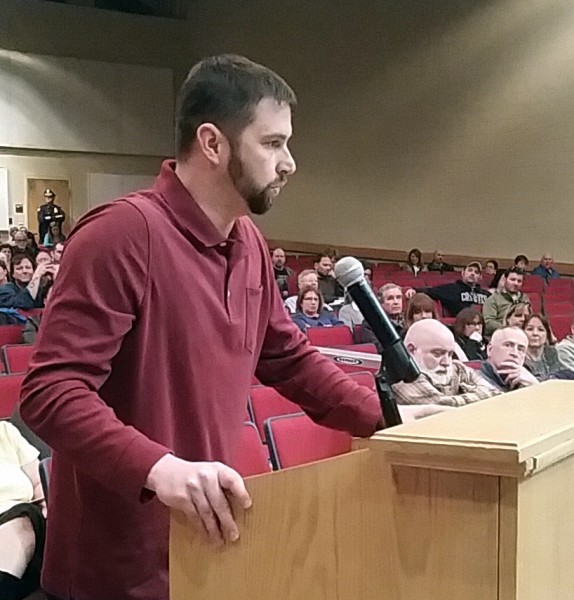

 EFSB Chair Margaret Curran said that because of the “tight time schedule” it’s critical that the board get advisory opinions “as soon as possible,” raising the question as to why the board feels the need to rush Invenergy‘s application process.
EFSB Chair Margaret Curran said that because of the “tight time schedule” it’s critical that the board get advisory opinions “as soon as possible,” raising the question as to why the board feels the need to rush Invenergy‘s application process.
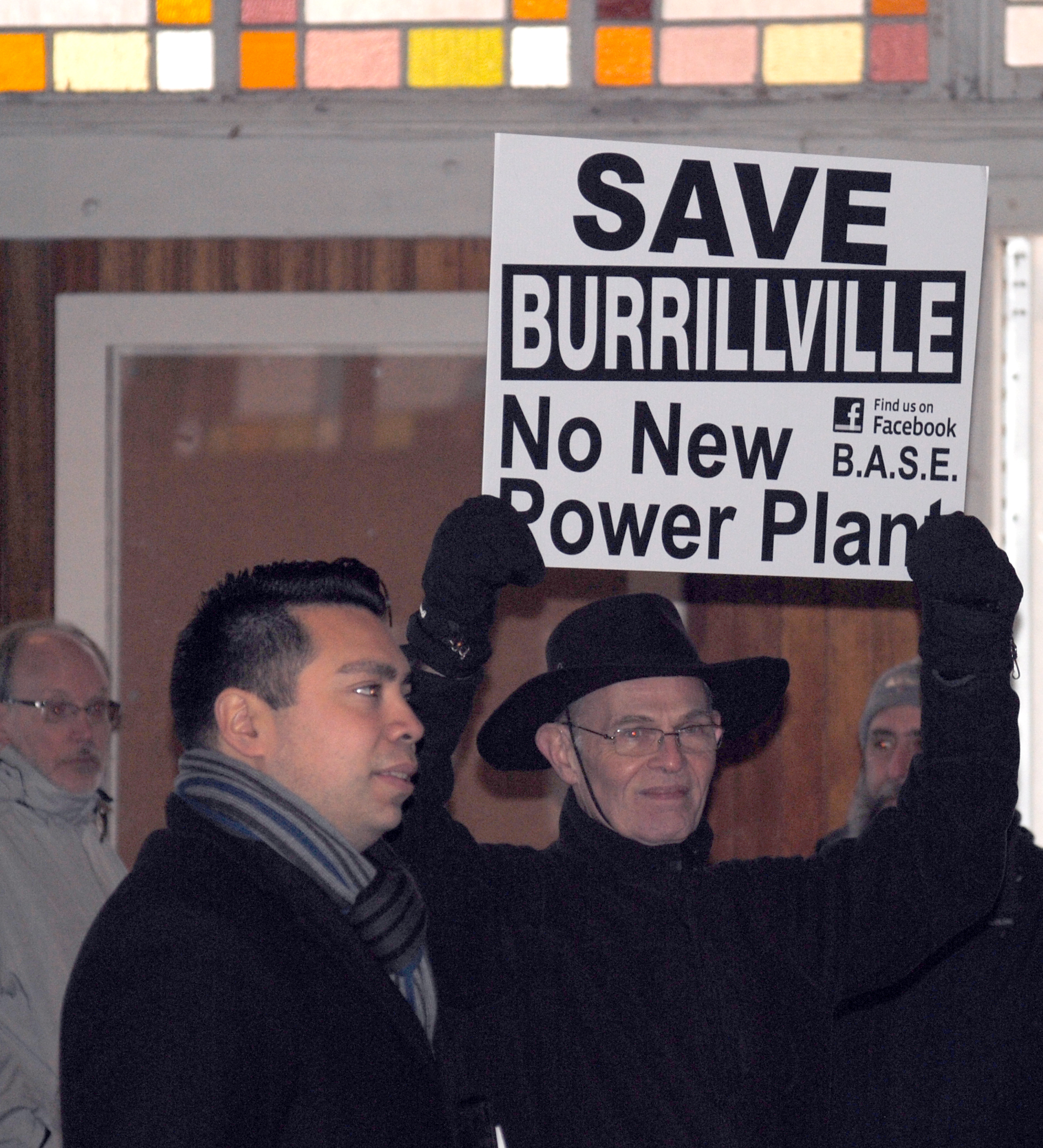
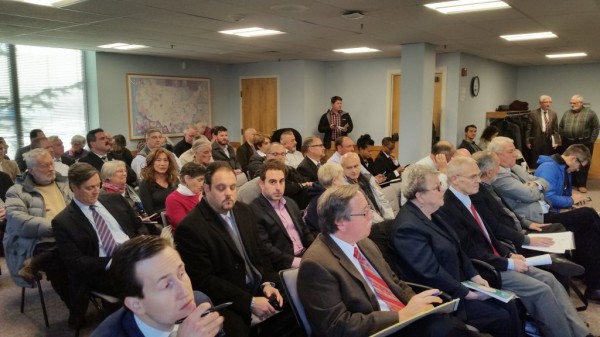 The new methane gas power plant planned by Invenergy for the Town of Burrillville met strong opposition from a variety of environmental groups but also had what seemed like strong support from both members of the
The new methane gas power plant planned by Invenergy for the Town of Burrillville met strong opposition from a variety of environmental groups but also had what seemed like strong support from both members of the 